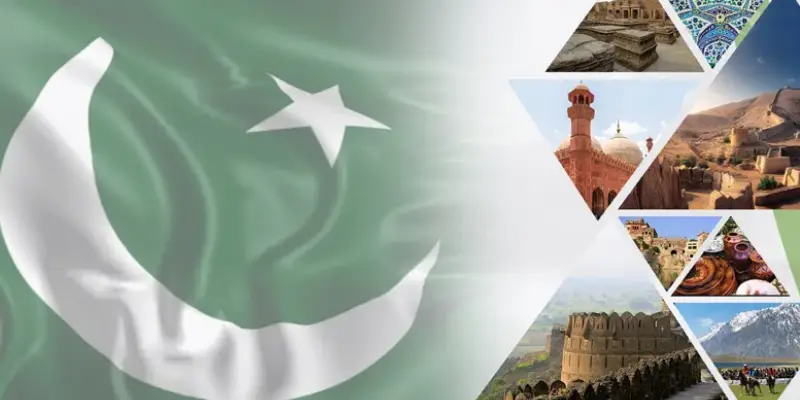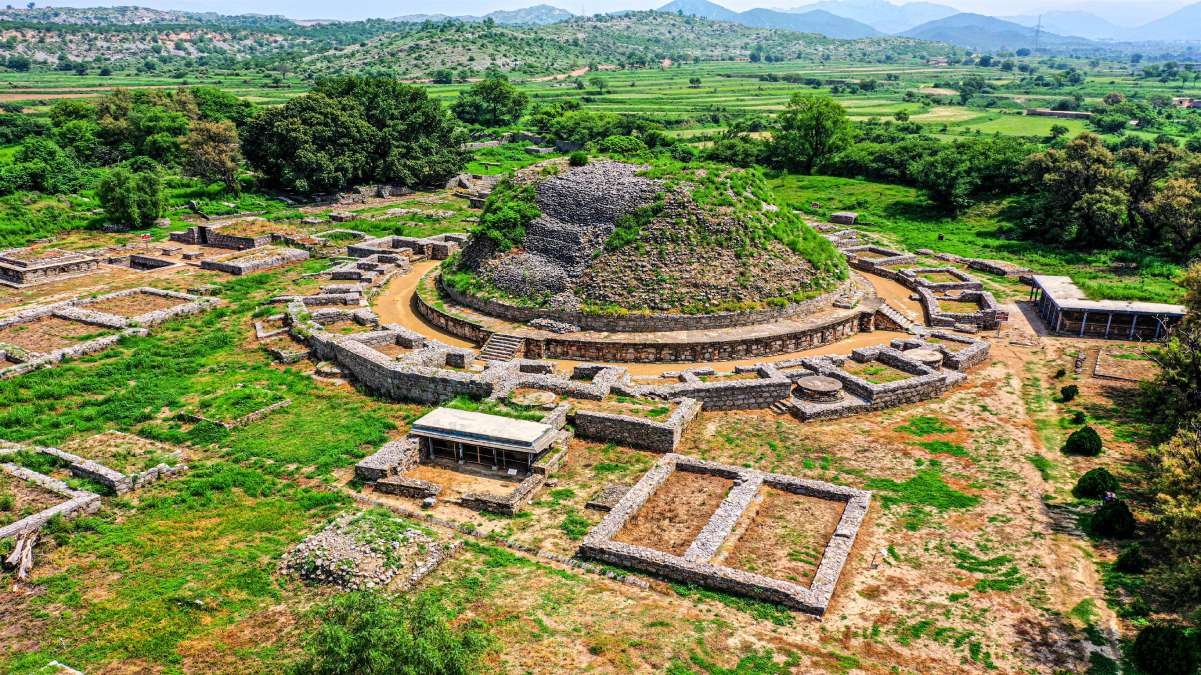
The Taxila Museum, located in the heart of the ancient city of Taxila in Pakistan, is a repository of the region’s rich cultural heritage. It houses an extensive collection of artefacts from the Gandhara civilization, showcasing the historical and artistic achievements of this ancient region. The museum’s exhibits include sculptures, coins, jewellery, pottery, and other relics dating from the prehistoric period to the medieval era. Taxila, an important archaeological site, was once a major centre of learning and culture in ancient India.
Table of Contents
ToggleTaxila Museum History

The Taxila Museum was established in 1918, during the British colonial period, to house the numerous artefacts unearthed from the archaeological excavations at Taxila. The initiative for creating the museum was driven by the need to preserve and display the rich cultural and historical heritage of the Taxila Valley, which had been recognized as a significant archaeological site due to its ancient ruins and relics.
Key Figures Involved in Its Development
Several key figures played instrumental roles in the establishment and development of the Taxila Museum. Sir John Marshall, the Director-General of the Archaeological Survey of India from 1902 to 1928, was a pivotal figure in the museum’s creation. His extensive excavation work in Taxila brought to light many of the artefacts that now form the core of the museum’s collection. Another important figure was Sir Alexander Cunningham, who conducted some of the earliest surveys and excavations in the area in the late 19th century, laying the groundwork for future archaeological endeavours.
Major Milestones and Historical Events Associated with the Museum
1918: Official establishment of the Taxila Museum.
1928: Completion of the museum building and opening to the public.
1980: Taxila was designated a UNESCO World Heritage site, bringing international recognition to the museum and its collections.
Recent Developments
The museum has undergone various renovations and expansions to accommodate new findings and improve visitor facilities.
Taxila Museum Location

The Taxila Museum is located in the city of Taxila, in the Punjab province of Pakistan. The exact address is.
Shahpur Road, Taxila, Punjab, Pakistan.
Geographically, the museum is situated in the Taxila Valley, an area known for its rich archaeological significance, approximately 35 kilometres northwest of Islamabad, the capital city of Pakistan. Visiting these landmarks in conjunction with the Taxila Museum offers a comprehensive experience of the region’s rich cultural and historical tapestry.
Exhibits and Collections
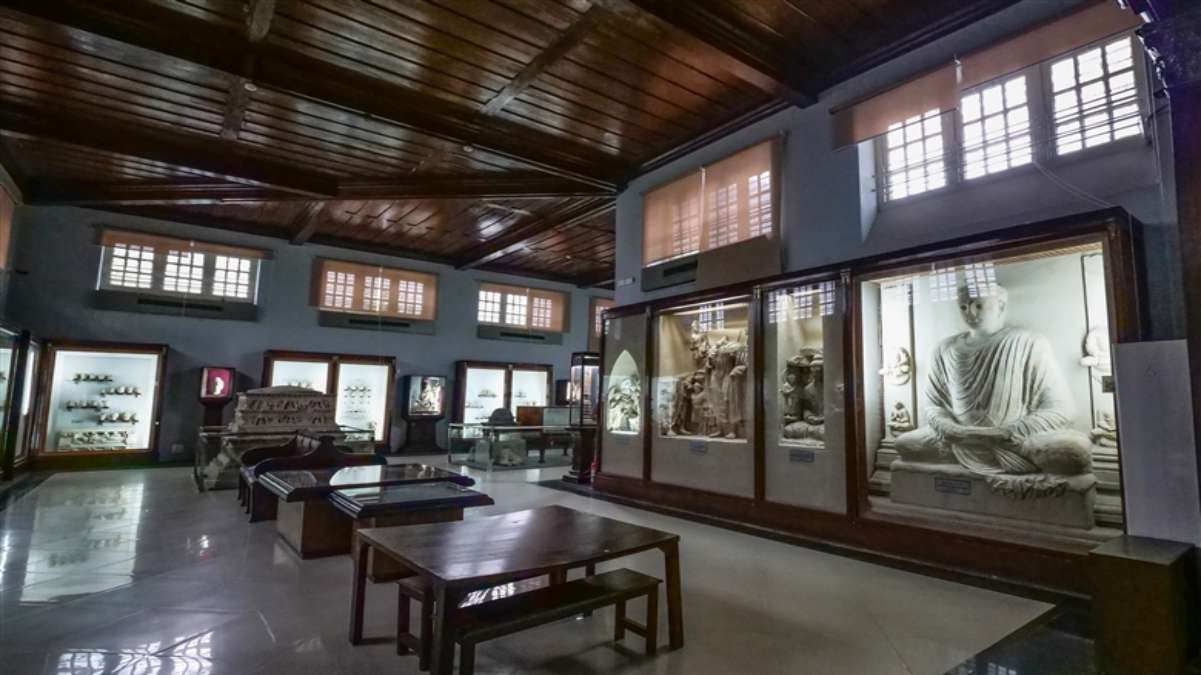
Overview of the Main Exhibits
The Taxila Museum is renowned for its extensive collection of artefacts that span several millennia, reflecting the rich cultural and historical heritage of the Taxila region. The main exhibits include a wide array of sculptures, coins, pottery, jewellery, and everyday objects from various periods of Taxila’s history, particularly highlighting the Gandhara civilization. These exhibits provide valuable insights into the art, religion, and daily life of the people who once inhabited this ancient city.
Description of Significant Artifacts and Collections
Gandhara Sculptures

The museum houses an impressive collection of Gandhara art, which is characterized by its unique blend of Greek, Persian, and Indian influences. Notable pieces include intricate stone carvings of Buddha and bodhisattvas, illustrating key events from the life of Buddha. These sculptures are celebrated for their detailed craftsmanship and artistic beauty.
Coins
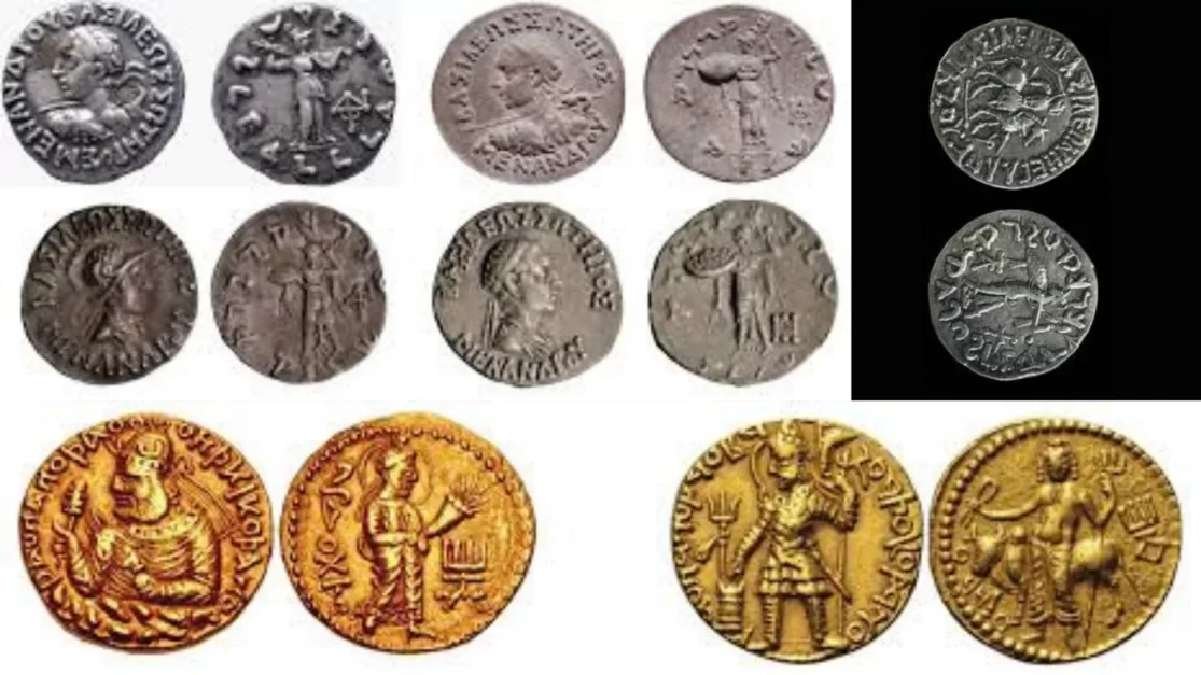
The coin collection at the Taxila Museum is extensive, featuring currencies from various eras, including the Greek, Kushan, and Gupta periods. These coins provide a fascinating glimpse into the economic history and trade practices of ancient Taxila.
Jewellery and Ornaments

The museum showcases a variety of ancient jewellery, including earrings, necklaces, and bracelets made from gold, silver, and semi-precious stones. These artefacts highlight the craftsmanship and aesthetic sensibilities of the ancient artisans.
Pottery and Ceramics
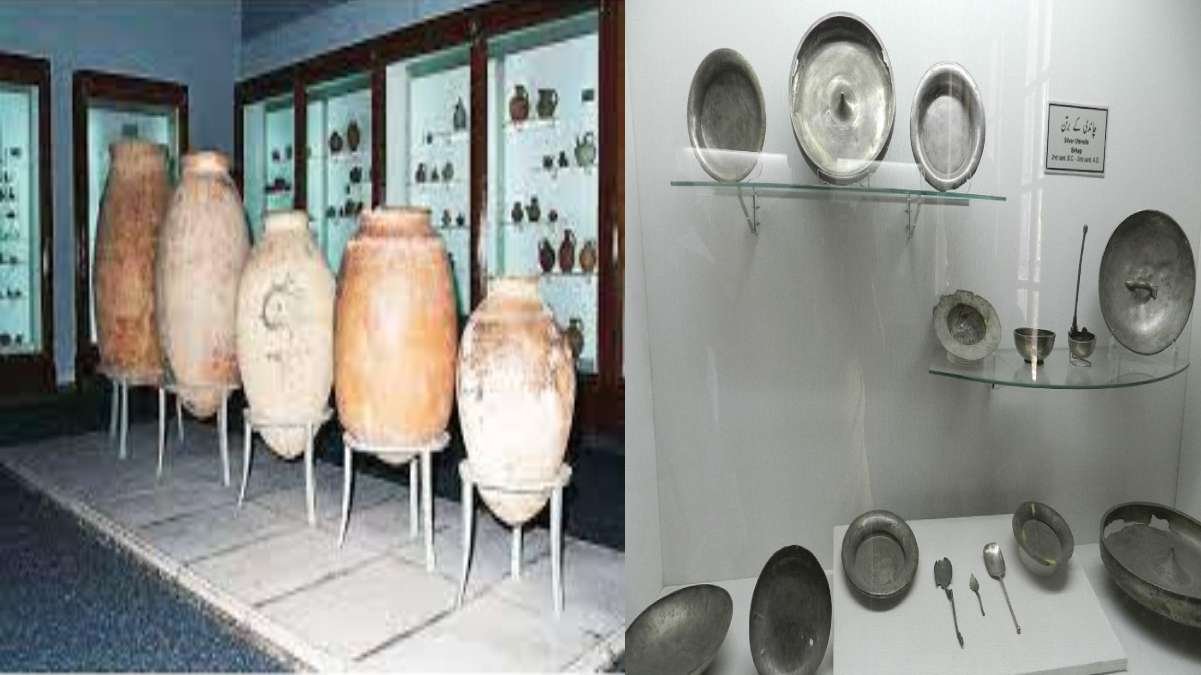
Numerous pottery items and ceramic vessels, ranging from everyday utensils to intricately designed ceremonial pieces, are part of the museum’s collection. These artefacts offer insights into the daily life and customs of the ancient inhabitants of Taxila.
Tools and Weapons

The collection includes various tools and weapons, such as knives, arrowheads, and farming implements, providing a deeper understanding of the technological advancements and military practices of the time.
Special Exhibitions and Temporary Displays
The Taxila Museum regularly hosts special exhibitions and temporary displays to highlight specific themes or recent archaeological discoveries. These exhibitions often feature:
Thematic Displays
Focused on specific aspects of the Gandhara civilization, such as Buddhist art, trade routes, or ancient craftsmanship.
Recent Discoveries
Showcasing newly unearthed artefacts from ongoing excavations in the Taxila region and surrounding areas.
Collaborative Exhibits
Partnering with other museums and cultural institutions to present joint exhibitions that explore broader historical and cultural contexts.
Educational Exhibits
Designed for school groups and young visitors, these displays often include interactive elements and educational materials to engage and inform.
These special exhibitions and temporary displays not only enrich the museum’s offerings but also provide visitors with fresh perspectives and deeper insights into the ancient world of Taxila.
FAQs
Where is Taxila located, and in which state?
Taxila is located in the Punjab province of Pakistan. It is situated in the Taxila Valley, approximately 35 kilometres northwest of Islamabad, the capital city of Pakistan.
Who founded the Taxila Museum?
The Taxila Museum was founded by Sir John Marshall, who was the Director-General of the Archaeological Survey of India from 1902 to 1928. His extensive excavation work in the Taxila region played a crucial role in the establishment and development of the museum.
What items are in the Taxila Museum?
The Taxila Museum houses a diverse collection of artefacts that reflect the rich cultural and historical heritage of the Taxila region. Key items in the museum include: Gandhara Sculptures, Coins, Jewelry and Ornaments, Pottery and Ceramics, Tools and Weapons, Religious Artifacts, and Elements
What is Taxila’s famous site?
Taxila is a famous archaeological site known for its rich historical and cultural significance. It was a major centre of learning and culture in ancient India.
Conclusion
The Taxila Museum stands as a testament to the rich historical and cultural heritage of the Taxila region, offering a comprehensive look into the Gandhara civilization and beyond. Established in 1918, the museum houses an extensive collection of artefacts, including exquisite Gandhara sculptures, ancient coins, jewellery, pottery, and tools, each narrating a unique story of the past. Situated in the heart of the ancient city of Taxila, the museum is easily accessible and surrounded by significant archaeological sites and scenic attractions. The museum’s commitment to preserving and showcasing ancient artefacts, along with its special Festivals there is exhibitions and educational programs, makes it a vital resource for both scholars and casual visitors.

